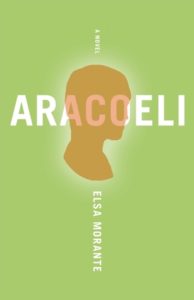 Title: Ducks, Newburyport (Goodreads)
Title: Ducks, Newburyport (Goodreads)
Author: Lucy Ellmann
Published: Text, July 4, 2019
Pages: 1040
Genres: Literary Fiction
My Copy: Paperback
Buy: Amazon, Book Depository, Kindle, Wordery (or visit your local Indie bookstore)
Having spent the good part of a month reading Ducks, Newburyport might shock many of the readers here, the fact that I spend most of my time reading books in translation, the fact that I often have reservations about reading a 1000+ page book, not willingly but mainly because I can’t stop myself from fixating on numbers, and the fact that it is rare for me to pick up a hyped book like this one, but in my defence I wanted to read this before the Booker Prize, I had actually heard about it from the Three Percent Podcast and knew that I had to get my hands on this novel. I think many people are put off by the style, Ducks, Newburyport has been promoted as a single sentence stream of consciousness novel which might make people feel hesitant. However, I think this is a surprisingly easy novel to read, and once you are in the groove of things, you will really enjoy the journey. The book focuses on the inner thoughts of an Ohioan wife as she is backing pies.
I have always been fascinated with the stream of consciousness but sometimes it feels like a gimmick, with Ducks, Newburyport it feels natural. This woman has a lot on her mind, from her own health worries, her family and the state of America. The books length is designed to be intimidating, to simulate that crushing feeling of thoughts and emotions. What impressed me most was the way Ducks, Newburyport blended pop-culture, personal experiences, memories and even synonyms to progress her inner thoughts, then sometimes they are just random tangents.
I can’t stop thinking about the way this woman censors her own thoughts, there are many times where she censors phrases like Trump’s ‘grab ‘em by the p____’ or using words like derriere. I think it speaks volumes about her character, this need to act a certain way, even in her own thoughts. She really freaks out when the thought of anal sex pops into her head. I feel like Lucy Ellmann wants to explore these feelings surrounded acting the way the patriarchy wants her to act, those feeling of shame or surprise, and the need to censor her own mind. The glossary of anagrams at the back of the book have also been sanitised, so FFS means For Pete’s Sake.
Having the book set in Ohio was an interesting choice, admittedly I did have to look up the state’s politics. Ohio seems like a real melting pot of political viewpoints, there is a very close divide between Republicans and Democrats. This really allows Lucy Ellmann to explore the volatile political landscape of America at the moment. Looking at major issues like climate change, gun control, mass shootings, and so much more.
The structure of Ducks, Newburyport is something that needs to be addressed. I have seen many people freak out about the idea of a single sentence, stream of conscious narrative but I found it really easy to read. The repetitive phrase ‘the fact that’ quickly gets drowned out and I tend to use the phrase as the start of the next sentence. Having said that, I like that Ellman gave a middle finger to writing rules like ‘avoiding repetition’ or punctuation and really did her own thing, and it worked.
Lucy Ellmann has published seven books in the past, but her regular publishing house, Bloomsbury rejected Ducks, Newburyport. Leaving the book to be published by small indie presses, Galley Beggar Press in the UK, Canadian publisher Biblioasis for North America and Text Publishing here in Australia. Ellmann is the daughter of two literary critics, her father Richard has written a biography on James Joyce author of Ulysses which Ducks, Newburyport continuously gets compared to. However, her mother, Mary Ellmann often wrote about the representation of femininity in British and American literature, and I think that maybe she had just as much of an influence on Lucy’s writing and worth mentioning. The book focuses heavily on feminism, motherhood and female representation in pop culture.
As most people know, I love pop culture and really appreciated the content references throughout the novel. Not only recent references but also exploring classics like The Odd Couple and a favourite of mine, The Apartment. All through the novel the narrator burst into random songs, and thinks about film and television, as well as literature. Without these references, I probably wouldn’t have enjoyed Ducks, Newburyport as much as I did.
Having said all that, while there are so many serious issues being explored within the novel, Ducks, Newburyport is extremely funny. I enjoyed every moment I spent with the novel. I loved the way the book advanced the narrative through memories. I found it to be a great way to develop the characters within the novel. Could a non-translated book be my favourite read for 2019? At this point, it is too close to tell. I highly recommend Ducks, Newburyport and think this book will require multiple reads in the future. It is the type of novel with mainly layers to unpack, and I look forward to reading it again. Also, I think this would make an amazing audiobook.

 Title: Sphinx (
Title: Sphinx ( Title: Disoriental (
Title: Disoriental ( Title: Love (
Title: Love ( Title: Aracoeli (
Title: Aracoeli ( Title: Fever and Spear (
Title: Fever and Spear ( Title: Purge (
Title: Purge ( Title: The True Deceiver (
Title: The True Deceiver ( Title: Soviet Milk (
Title: Soviet Milk ( Title: The 7th Function of Language (
Title: The 7th Function of Language (